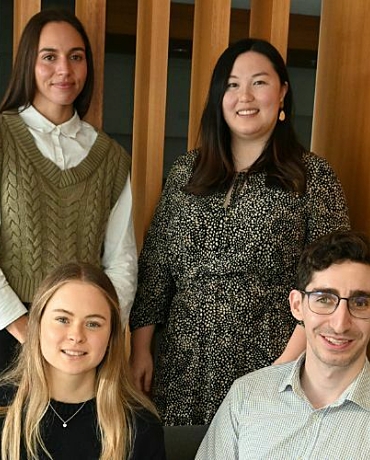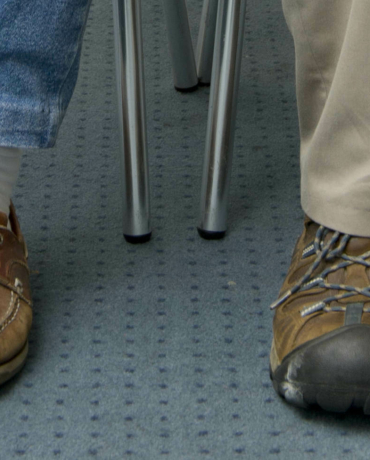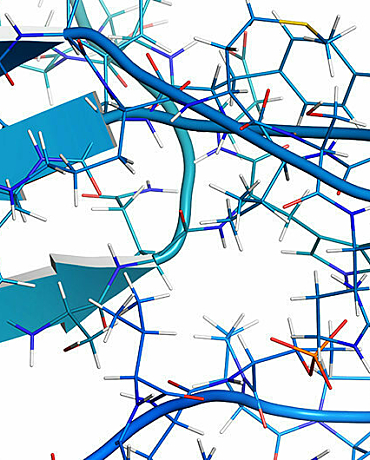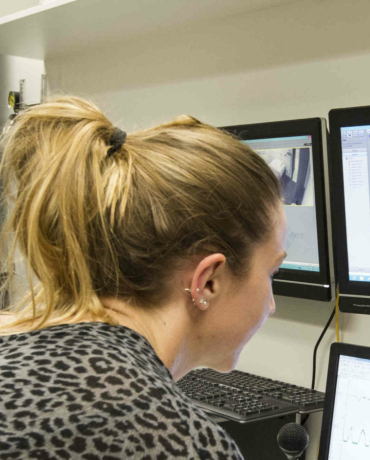Alzheimer's disease
There is currently no cure for Alzheimer’s Disease but there is hope - our research is focused on finding better methods of prevention and treatment.
There is currently no cure for Alzheimer’s Disease but there is hope - our research is focused on finding better methods of prevention and treatment.

We are looking at how brain tissue changes associated with Alzheimers disease may respond to new treatments. This includes researching why people on anti-hypertensive medications are less likely to have Alzheimers disease. We are also working to understand the extent of genetic risk factors and how best to target brain tissue to reduce the effects of the disease.
NeuRA researchers are part of an international collaborative study aimed at stopping Alzheimers disease by testing drugs to tackle the build-up of an abnormal protein in the brain found to precede the onset of Alzheimers disease symptoms.
The Dominantly Inherited Alzheimer Network (DIAN) Study, launched in 2008, engages participants with a family history of dominantly inherited Alzheimers disease. Affecting less than one per cent of those with Alzheimers, this rare genetic form of Alzheimers causes memory loss and dementia in people typically in their thirties to fifties. Participation in research trials by those at risk or with early-stage symptoms enables discoveries that potentially benefit everyone, including older adults with age-associated Alzheimers.
The DIAN-TU clinical trial program comprises 42 trial sites in the USA, Australia, Canada, South America, Europe, the UK, and Asia. The program was developed after promising findings from the DIAN Observational Study. It successfully mapped the biological signs (biomarkers) of Alzheimers disease that are detectable before the onset of clinical symptoms. By 2012, results showed that symptoms are preceded by the accumulation of amyloid (an abnormal protein) in the brain for up to 20 years.
From 2014-2019, Australian participants in the DIAN-TU-001 clinical trial at NeuRA and also in Melbourne and Perth received one of two experimental drug treatments aimed at potentially changing the course of the disease. The trial results published in Nature Medicine in June 2021 showed that the drug gantenerumab had a significant effect on brain amyloid levels. An extension of the trial began in 2020 and will run until 2022, allowing further data collection on the effect of the drug over a longer period, and in a largergroup of participants.

Neurologist

Senior Principal Research Scientist

Director Sydney Brain Bank

Senior Research Fellow (Honorary)

Senior Research Scientist
Every dollar of community support enables our scientists to continue making life-changing discoveries that contribute to a brighter and healthier future.
Run, swim or bake your way to making a positive difference in the lives of people touched by brain and nervous system disorders.
Stay informed about our latest research breakthroughs, scientific discoveries and the incredible minds behind them – subscribe today.
Neuroscience Research Australia respectfully acknowledges the Bidjigal and Gadigal peoples of the Eora Nation as the Traditional Owners of the Land on which we stand and pay our respects to Elders past and present.
Redevelopment of the NeuRA website has been made possible by the generous support of Conexus Financial.








